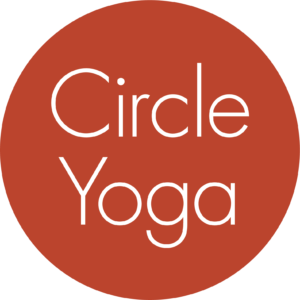October 2013
Dear Friends,
Over the last month, I have traveled quite a bit, visiting old friends and family, and have been on retreat. As a result of my mindfulness practice I have been able to be present quite a bit of the time, often putting aside my computer and my drive to “get things done.”
When I first began practicing mindfulness in the 1990’s, I heard Thich Nhat Hanh say that there were three doors to liberation: Shunyata – Emptiness; Animittata – Signlessness, and Apranihitata – Aimlessness. As I began to study these concepts and put them into practice in my life, I found aimlessness to be the most challenging. I received a dharma name from Thich Nhat Hanh in 1999, which translated to “Joyful Purpose of the Heart”. How could I be aimless and still have a joyful purpose?
“We don’t need to become anything else. We don’t need to perform some particular act. We only need to be happy in the present moment, and we can be of service to those we love and to our whole society. Aimlessness is stopping and realizing the happiness that is already available. If someone asks us how long he has to practice in order to be happy, we can tell him that he can be happy right now! The practice of apranihita, aimlessness, is the practice of freedom.” – Thich Nhat Hanh
We are living in a goal-oriented world, and I am a goal-oriented girl. But what is the impact of the drive to reach my goals? If my goal is noble, but my means create suffering, does the end really justify the means? Or do the means condition and even create the end?
Say I am at my desk, writing this post, which I believe from previous experience may help the reader find a way to reduce suffering in his or her life. The phone rings, it is my daughter calling from college. I pick up the phone and say hello, but my goal-orientation is still strong and I am not able to listen mindfully to the conversation. Because I am distracted, I am not able to support her need for connection and we hang up the phone, both feeling a little tense. Or I ignore the call, continue writing toward my goal, and we both feel sad to have missed a connection. If my deepest purpose is to reduce suffering, I have just created some additional suffering in order to finish the post which is intended to reduce suffering. Or maybe I didn’t get the call and something else intervenes and prevents me from finishing the post. Now I created additional suffering without even reaching my goal.
When I shift my thinking and recognize that the means condition the end, I move into aimlessness. From a place of aimlessness, I pick up the phone when my daughter calls. I know that this moment is the only moment in which I can find happiness. Finishing the blog post may or may not create joy and happiness in the future, but picking up this phone call could bring joy and happiness right now. Moreover, whatever happiness I create right now will be woven into the post that I am writing and carried forward to my readers.
“Remember then: there is only one time that is important– Now! It is the most important time because it is the only time when we have any power. The most necessary man is he with whom you are, for no man knows whether he will ever have dealings with any one else: and the most important affair is, to do him good, because for that purpose alone was man sent into this life!” –Leo Tolstoy, “The Three Questions”
Leo Tolstoy wrote about aimlessness in his short story, “The Three Questions.” Whatever we do in this moment creates our future moments. We can’t ignore these moments in order to get to some better future moment without impacting that future moment. We can only take each moment as it comes. This is the way of Apranihitata or Aimlessness.
“And what you thought you came for
Is only a shell, a husk of meaning
From which the purpose breaks only when it is fulfilled
If at all. Either you had no purpose
Or the purpose is beyond the end you figured
And is altered in fulfillment.” — T.S. Eliot, The Four Quartets
Living with aimlessness doesn’t mean we can’t have plans for the future or that we never finish writing the post. We can have a purpose, a goal, when it is tempered with joy. If I remain attentive to the joyfulness of each step along the way, whether I reach my ultimate goal doesn’t matter, because my purpose is fulfilled in each moment that I am present and sharing or receiving joy. I suffer only when I am so attached to my goal that I am willing to give up the joy and happiness of the moment. If I hold my goal loosely and with a joyful heart, I bring my happiness and joy into the goal with me. And then I am truly living my Joyful Purpose of the Heart.
with love,
annie.
